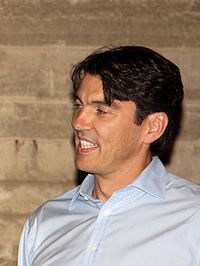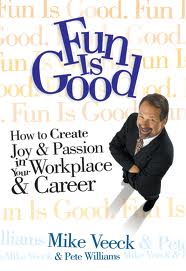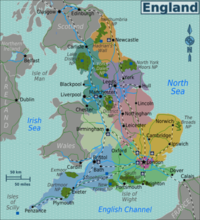Think of this as Volume 17, Number 34 of the newsletter I have written weekly since March, 1997. Enjoy.

local business. Every place is unique.
Those people who ignore these facts
always get it in the end. Tim Armstrong has gotten it in the end with
Patch. He deserves to see it end his career.
But that doesn't mean local news isn't
a great business. Just the opposite.
One of my fonder memories from my days
at the Atlanta Business Chronicle was attending a local launch party
for USA Today. Stacks of the first issue were handed out, and I still
have mine. Al Neuharth spoke by satellite. Many hors' d'oerves were
consumed, many beers were drunk. And the crowd at my party laughed
their asses off, because the product seemed so lame.

“state news,” single paragraphs describing a story that had
apparently happened in each state that day. The paragraphs were
devoid of color, of tension, of anything that would have made them
news. It just seemed like people all over the USA doing USA things in
a USA way, which I guess was the USA point. This was a national
paper, for one country, and while it had a lot of places inside it,
what was happening in them didn't really matter.
This, we concluded, was crazy. “USA
Today, No Big News Today,” we sang. The paper read like a local TV
newscast, with all the depth of celluloid.
Patch os similar. Patch has one logo,
one look-and-feel. A Patch site in Georgia looks just like one in New
York. Each is staffed by someone who thinks, writes, and reports like
an intern, a kid covering school board meetings pretending to be Bob
Woodward.

The memos on the site's fall,
and the story of AOL CEO Armstrong firing one executive in the
middle of a conference call,
all speak of panic.
Patch was Armstrong's baby. He brought
it with him to AOL. There is one person at AOL who deserves to be
fired over this fiasco. His name is Tim Armstrong.
What should the company have done
instead?
It should have offered the software as
a franchise.
Instead of hiring 600 people to run 600
identical sites, Armstrong should have created one site, under one
publisher, in one place, maybe Alexandria, Virginia, where AOL is
located. That publisher would have acted as a full beta test,
ordering content, selling ads, arranging the software to fit the
community, giving his site a unique look-and-feel, keeping track of
everything, especially his own P&L.
Only when that single site was
profitable should Armstrong have considered going national with it.
That publisher would have learned the value of reach, the value of
engagement, and would have ordered the creation of tools to measure
that. He would have hired an editor, maybe more than one, and managed
a balance sheet. Maybe he would have fired some people, quietly, who
couldn't cut the mustard in editorial or ad sales. He would have
learned what to look for in good people. It would have been a book.
Maybe that site wouldn't have worked.
Maybe, after a year, even with a good publisher, Armstrong would have
found out he'd wasted a million dollars. Much better than wasting a
billion, don't you think?
From a successful experience, the
publisher could have built a handbook, and a franchising plan. Not
for cookie-cutter sites, but for individual, unique sites. Then he
would have gone around selling this opportunity to small publishers
and people who wanted to be in the local news business around the
country, charging them fees up-front, but delivering in return a plan
and the back-end support needed to execute it in a customized way.

For decades baseballs' minor leagues were a failure, mainly because
the major league teams insisted on running it. Cookie-cutter teams
with cookie-cutter major league logos on them, in bandbox parks and a
parade of identical-looking kid ballplayers.
Until, that is, Mike Veeck came along.
He bought a team, re-branded it with a local identity, he started
running local promotions, and began giving people a good time. The
score became secondary. The idea was that this was a local
celebration of a local place, its unique values and ability to have
fun. It worked, and now most minor league teams have their own,
separate, unique identities, their own profit-and-loss statements,
and they're making money. (He even wrote a book about it called Fun is Good.)
That's what local news has to be. Maybe
you'll find someone in a small Alabama town who can aggregate
everyone in the community to watch for his stuff, every day, and
debate it intensely. That guy can prove to local advertisers that he
reaches their market, that he has high levels of engagement with that
market, and thus local advertisers will call him, because he'll be
their only choice. Maybe the “Patch” in that small Alabama town
becomes a bigger business than the one covering all of Long Island,
or a city like Atlanta. And it shouldn't be called “Patch,”
either. It should have a unique name for that unique piece of
Alabama.

about local. You can offer back-end software, you can offer ad
support, but in the end it's about what a local guy does in his own
town that counts. You can get your best people to deliver best
practices, you can improve your central system based on their input,
you can essentially create markets for local papers and have them
bought, sold, and traded.
But you can't run it from the top-down.
It can only work from the bottom-up.
Tim Armstrong never understood that, he
still doesn't, and for that he needs to be fired.










